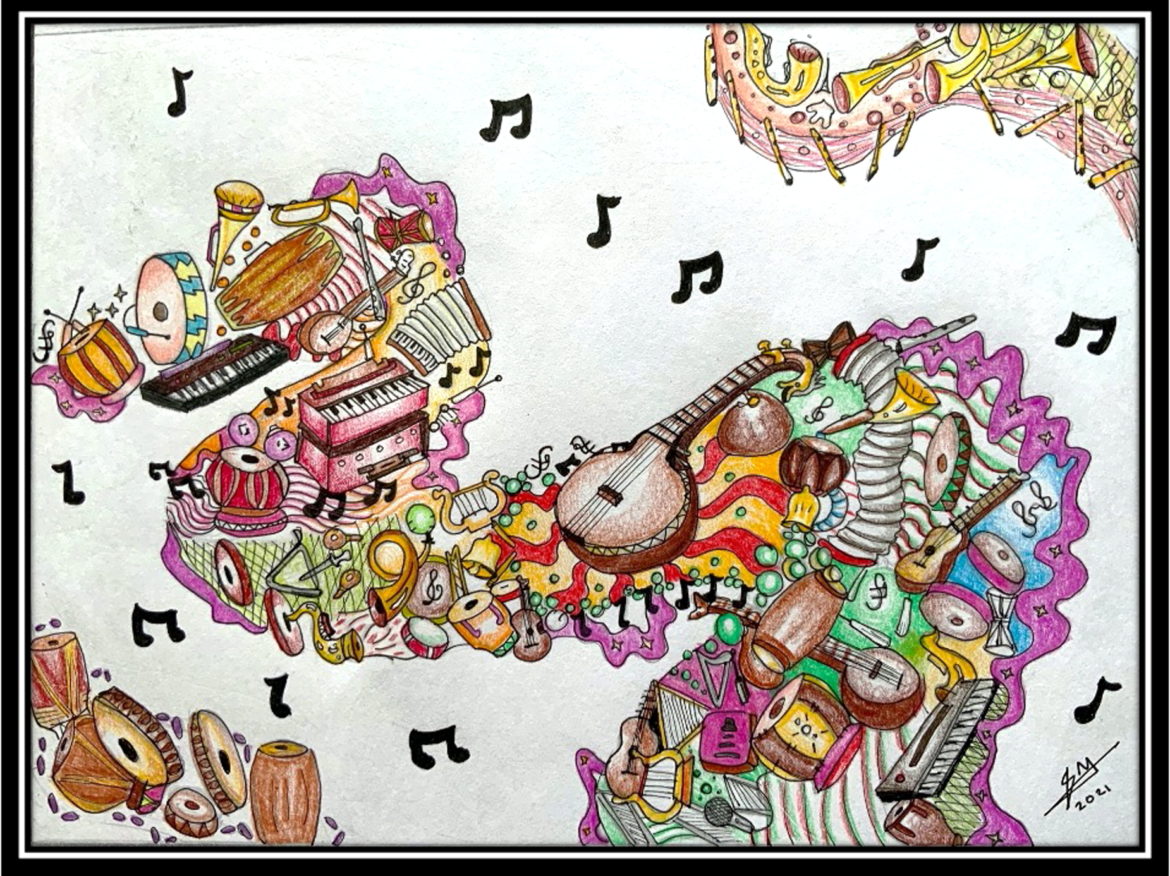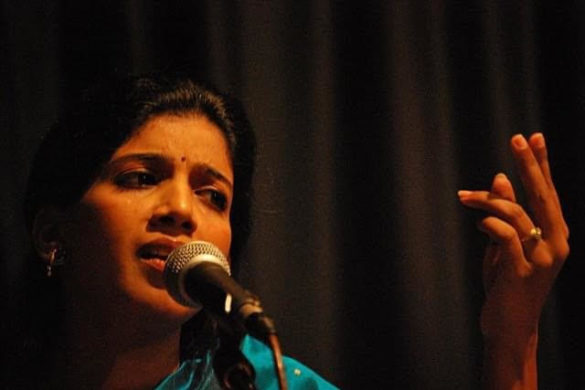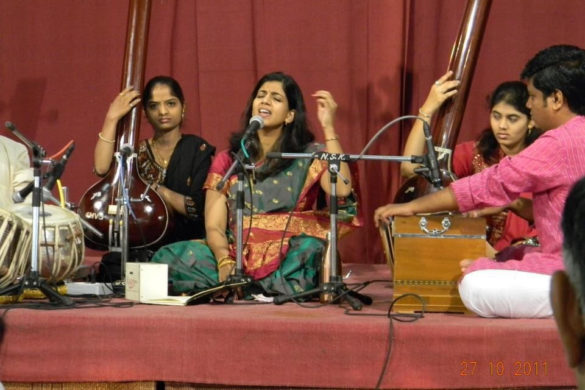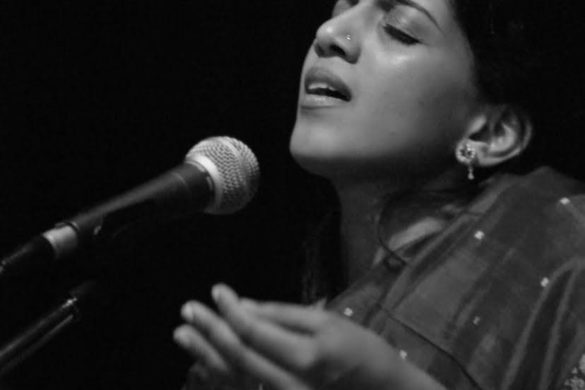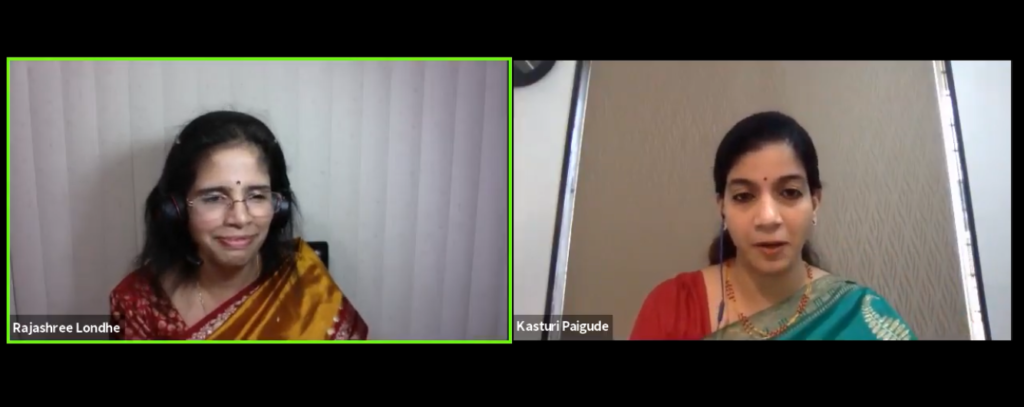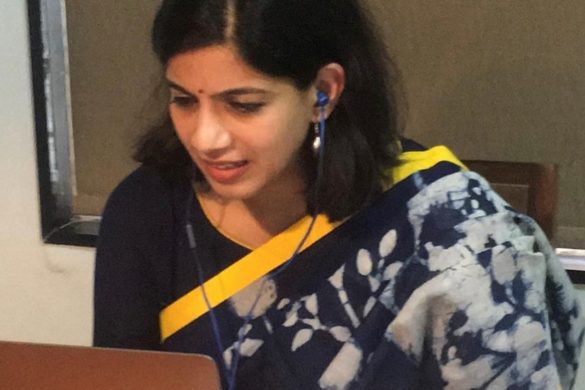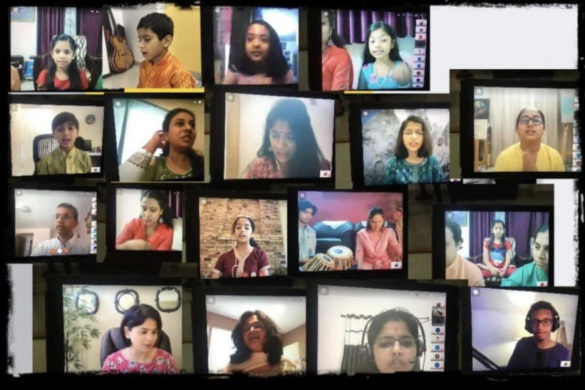Illustration by Snehin Mitra
Who would ever have thought that our lives would come to a standstill, that we would need to think differently from what we always did and that our lifestyles would change so drastically because of a virus that none of us could even see? It has weakened all of us and brought us to our knees.
As a student of music, I have learnt that good music makes a deep impact on people. Listening to good music and learning does trigger certain sensitivities in a person. Music, to me, is undoubtedly one of the necessities of life, along with food, shelter and clothing. The others focus more on the outward things a person needs while music focuses more on a person’s inner life.
For the first time that I have seen, people have lost jobs, have been forced to stay at home, work from home, not have domestic help, not allowed to socialize and been barred from doing everything that an individual would do otherwise for entertainment and enjoyment – all because of the pandemic. This has resulted in less efficiency at work due to distractions at home, frustrations due to the workload of domestic chores and boredom due to the absence of social life. Only technology has proved the one godsend remedy for many of these problems.
As a vocalist, researcher and faculty of music, I always preferred to learn from my guru and teach my music students in person – except, of course, the overseas ones who are taught online throughout the year. But, not being able to be in the same classroom even with students who lived nearby was hard. Teaching Indian classical music which has traditionally been done via the ‘oral’ method underwent a major shift.
Not knowing when the pandemic would end, I decided to teach music online. Otherwise the students would have been forced to take a long break from learning music.
It wasn’t as easy as I thought. For the kids, keeping up the attention in the classes was challenging. They would get easily distracted, often bored, and would just want to play. But slowly, I could get everyone involved in the class and they began learning some music compositions. But it was slow. Activities that I thought would take a month got stretched to six months. But both the children and their parents wanted to persevere. The children did have fun learning different taals (rhythm) and a few songs based on Indian ragas (melodies). At the very least, for a few hours every day while they sang, practiced and made friends, they forgot about their house arrests and had fun while learning.
Another way, for me, of connecting to the music lovers during this pandemic was through various webinars, YouTube, Facebook and Instagram live sessions — South Central Zone Cultural Centre webinar, a live YouTube session by the Milwaukee Maharashtra Mandal, a Facebook live session by Jnana Prabodhini Prashala and an interactive session by SPIC MACAY under the Global Connect series. Through these sessions, I was able to connect with, and perhaps briefly distract and interest, thousands of music lovers all over the world who were very likely in the confinement of their homes because of the pandemic. Many reached out and expressed their gratitude for bringing music through a virtual platform, however briefly, into their lives for some solace and peace in these trying times.
I am glad that the gentle power of music was able to shine through the fog of this virus that had enveloped us so completely and for so long. I can certainly say that it brought a ray of cheer to me, and hopefully to other people as well.
